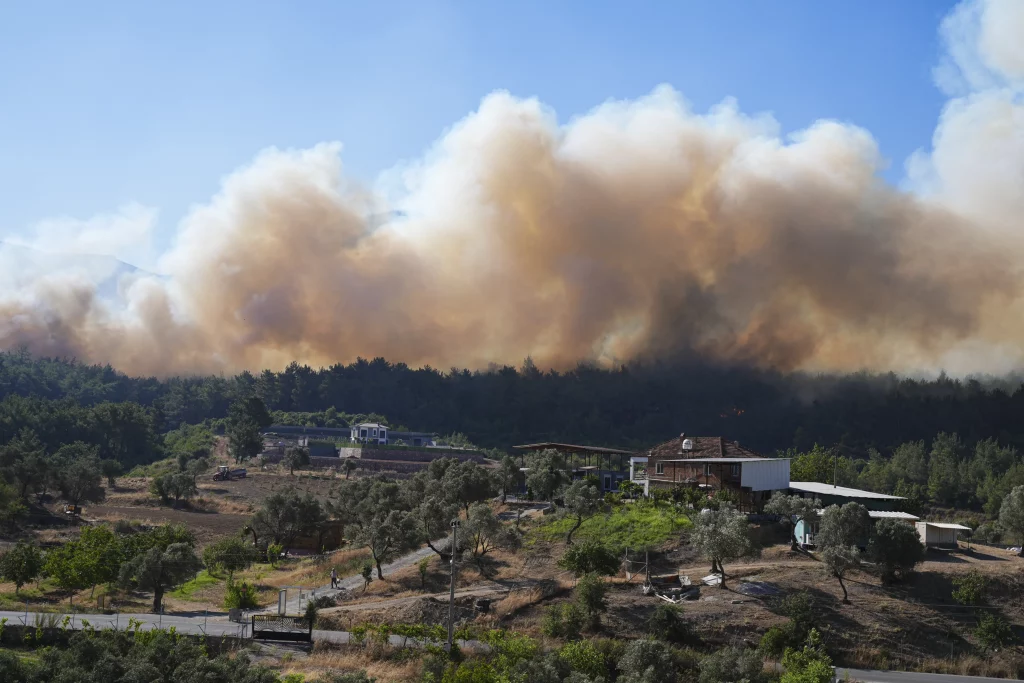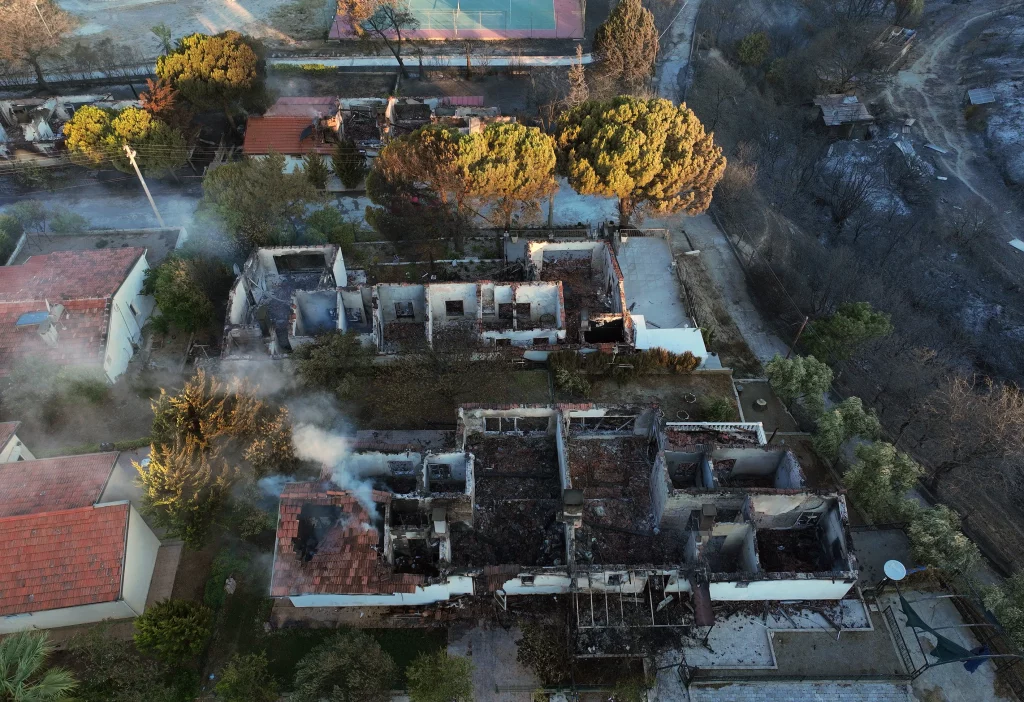Between June 24 and 26, 2025, the province of Izmir in western Turkey experienced a series of eight large-scale forest fires, marking one of the most severe wildfire events in the region’s recent history. The initial outbreak occurred in the district of Çeşme, where the fire rapidly spread and posed a significant threat to adjacent residential areas. Subsequent fires ignited in the Kuyucak and Doğanbey areas on June 30th, exacerbated by strong winds reaching speeds of 50–110 km/h. These meteorological conditions contributed to the rapid expansion and increased intensity of the wildfires. The impact of the fires was substantial. Official reports confirmed two fatalities, while hundreds of houses sustained severe damage. The scale of the disaster necessitated the evacuation of more than 50,000 residents, highlighting the fires’ extensive disruption to local communities.

In addition to residential destruction, critical infrastructure was affected; notably, operations at İzmir Adnan Menderes Airport were temporarily suspended due to the proximity and severity of the fires.
Firefighting efforts were extensive and involved coordinated responses from local and national agencies. The Ministry of Agriculture and Forestry announced that the fires in İzmir were brought under control by July 4, 2025. However, the situation remained precarious, as wildfires continued to pose threats to other regions across the country, underscoring the broader challenge of wildfire management in Turkey during the summer of 2025.
The Izmir wildfires exemplify the increasing frequency and intensity of such events in the Mediterranean basin, likely influenced by climatic factors such as prolonged drought, high temperatures, and strong winds. The socio-economic and environmental consequences of these fires necessitate ongoing research and policy attention to improve disaster preparedness, mitigation strategies, and community resilience in the face of escalating wildfire risks.

